When the bike is life
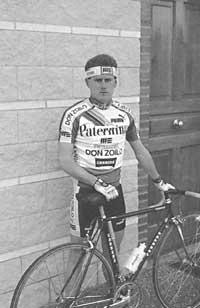
The professional life of the cyclist is the sum of cycles of a year. Therefore, the analysis of a season was the basis of the interview.
Although every cyclist has its customs and ways of life, what Joxean says can be to some extent general.
November is the month of cycling holidays. That month they leave aside physical and mental penalties. This rest is very important to start last season.
The trainings begin at the end of November. In the morning, Joxean runs before breakfast forcing little body: before burning the carbohydrates you have to burn fat. Then comes the breakfast in which the fruit, cereals and toast with butter is the most common. The morning work is done in the pediment, in the mountain or in the gym. More and more importance is given to the gymnastics, being the back, the waist, the thighs and the arms the parts of the body to strengthen more. Until recently no muscle shooting exercises were done, but now they all do.
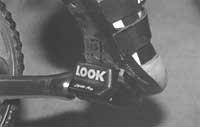
In this first phase of preparation the bicycle is not touched. Christmas begins to cycle around. Then, although the morning race is abandoned and gymnastics is still being done, there is a tendency to leave it. The intensity of the training will depend on when you should be strong each. Joxean travels between 60 and 80 km at the beginning and gradually increases the distance.
Filming of the filming
A medical examination is recommended at the end. Among the explorations that are made is the stress test. This test allows to know the level of each cyclist, that is, the maximum number of clicks that a cyclist can withstand and the time that can remain in this situation.
With this data, the cyclist hardens the training. Training is usually intensive and extensive. Intensive training in hard series. These series try to reach the maximum number of pulses and last as long as possible in this situation. In extensive training it usually circulates many hours but with tranquility.
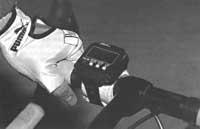
Medical examination shows the weakest points of each cyclist. Joxean must take care especially of the iron level of his body. Therefore, it performs a blood test for a month and a half.
When the race time arrives, the intensity of the training decreases, since the same race is usually enough. Things change a lot in food. Three hours before the start of the race, a breakfast lunch is celebrated. It eats fruit or juice, cereals with yogurt or milk, white rice, coffee or tea or coffee with milk and toast with butter or jam.
What is eaten during the race depends on the stage and time. But the normal thing is that the fruit (banana, apple, pear) in small pieces, apple cakes or small rice, substances with glucose or carbohydrates and drinking water mixed with mineral salts.
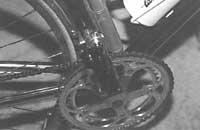
Once the race is over, the time comes to go to the hotel, shower and dinner. As the races are usually within a lap, the next day you have to return to appear strong and that's why at dinner you always get protein. The typical menu is usually salad, then balance or pasta or rice, and finally meat or fish.
The quality of clothing has changed a lot in recent years. The basic clothes of the cyclist are footwear, socks, butt, mailot and gloves. The quality is perceived mainly against cold and friction. Some cyclists note a lot in the feet the change from heat to cold and vice versa. Others perceive it in the upper parts. The most common lesions occur in the knees and tendons of Akiles.
In recent months there has been a lot of talk about the case. When Joxean was as an amateur, he got used to wearing the helmet and now it doesn't cost him too much to wear. But some professionals who run many years have a hard time wearing the helmet on hot days. In addition, the UCI (International Cycling Association) has forced cyclists to wear a certain helmet, which has generated distrust among cyclists. In this field, Joxean is clearly considered: I am a supporter of wearing a helmet, but seeing how things are, I am against imposing.
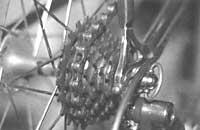
The work tool of the cyclist is the bicycle. The structure of the standard bicycle is made of steel frame, the rest of aluminium parts and tubular wheels. The frame can be in some cases aluminum or carbon fiber. This type of frames are lighter than those of steel, so the slopes are easier to climb, but it is advisable to have a weight to lower the slopes. Therefore, steel frames are better than others. The tubular wheels are suitable for circulating through the holes of the road, but increases the risk of drilling of the wheel itself. Joxean and the team have decided to use this year the camera and tire.
The main change the bike has suffered in recent years has been the ointoki, according to Joxean. The ointokis currently used have their origin in skis.
The dishes and sprockets do not change much in the races. As for the dish, the smallest is 42 hours and the 52 to 53 hours. In the time trials, 54 hours are usually used. As for the sprockets, eight are currently used. The smallest is 12 hours and from there the progression is 13, 14, 15. 17, 18 and 21. If you have to climb steep slopes, remove one of the small pines and place between 22 and 23.
It is more important that the bike has adequate dimensions than being well equipped. It is better to have to upload the picture by small than on the contrary. No way to walk should be imitated on the bike. On the contrary, each one must find his or her most appropriate position.
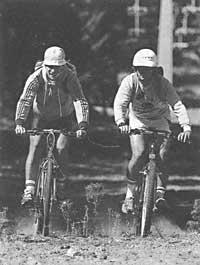
At the time of climbing the slope, Joxean advises to use the gambio as little as possible, and at the time of changing it from small to greater, better from greater to smaller.
Joxean Daboz is a professional cyclist, but says he is also an employee who works with the bike. However, the advantages that any employee can have, such as Social Security, retirement, unemployment benefits, etc., have so far been denied to cyclists. It seems, fortunately, that the public administration and the cycling association have begun to speak and that a normalized employment situation will be achieved. At the moment only Social Security has been achieved.
Finally, the reader, Joxean gave me advice for those of us riding a bike with marques: You have to enjoy the bike and do not make fun until getting a proper physical form.
Thank you very much in Joxe.
Buletina
Bidali zure helbide elektronikoa eta jaso asteroko buletina zure sarrera-ontzian











